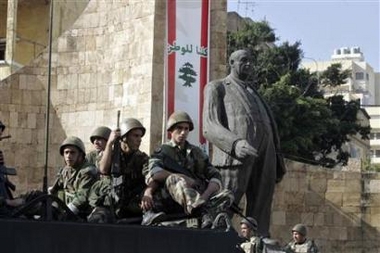 Last Christmas, the Maronite Patriarch Mar Nasrallah Boutros Sfeir told Lebanese Christians, "Do not be afraid." At first glance, the Lebanese did not seem afraid, not a bit. Despite all the turmoil they were going through, they still managed to put up their Christmas trees, go to nightclubs, dine at fancy restaurants and attend Fayruz. At second glance, however, the Lebanese had every reason to be afraid back then, and even more so today, one year later. Lebanon continues to suffer from the Israeli war in 2006, and the continued assassinations that have badly hit Lebanon’s economy — and tourism — since 2005 Then came the massive sit-in starting 2 December 2006 which at the time of writing, continues, with the aim of bringing down the cabinet of Prime Minister Fouad Al-Siniora. Now comes vacancy at the Presidential Palace.
Last Christmas, the Maronite Patriarch Mar Nasrallah Boutros Sfeir told Lebanese Christians, "Do not be afraid." At first glance, the Lebanese did not seem afraid, not a bit. Despite all the turmoil they were going through, they still managed to put up their Christmas trees, go to nightclubs, dine at fancy restaurants and attend Fayruz. At second glance, however, the Lebanese had every reason to be afraid back then, and even more so today, one year later. Lebanon continues to suffer from the Israeli war in 2006, and the continued assassinations that have badly hit Lebanon’s economy — and tourism — since 2005 Then came the massive sit-in starting 2 December 2006 which at the time of writing, continues, with the aim of bringing down the cabinet of Prime Minister Fouad Al-Siniora. Now comes vacancy at the Presidential Palace.
On 23-24 November 2007, Beirut seemed divided between those rejoicing at the exodus of President Emile Lahoud and those paying homage to a man whom they considered a great struggler. Lahoud left a vacant post at Baabda Palace. After weeks of negotiations, the Lebanese were unable to agree on a replacement. Neighbourhoods loyal to parliamentary majority leader Saad Al-Hariri celebrated with fireworks and young people dancing in the street.Syrian television aired a special documentary about him, saying that he was the man who helped unite Lebanon, in his capacity as army commander, in the 1990s. He helped liberate South Lebanon in 2000, and prevented Lebanon from becoming a satellite state of the United States and Israel. Other strong examples are Maronite chief Suleiman Franjiyeh, former prime ministers Omar Karameh and Najib Mikati, parliament speaker Berri, and Hizbullah leader Hassan Nasrallah. All of them upheld Lahoud as a constitutional president, after the Syrians departed in April 2005.
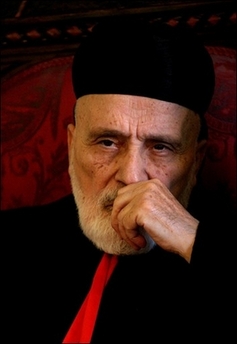 01 December 2007BEIRUT: Maronite Patriarch Nasrallah Butros Sfeir urged the opposition to end its boycott of the presidential election and elect a successor to former President Emile Lahoud. He warned the vote must be held "before it’s too late.""The present situation is dangerous and we wonder if any of those in charge, and those who avoid going to Parliament when an electoral session is called, appreciate the seriousness of the situation," Sfeir said in a statement issued Friday.
01 December 2007BEIRUT: Maronite Patriarch Nasrallah Butros Sfeir urged the opposition to end its boycott of the presidential election and elect a successor to former President Emile Lahoud. He warned the vote must be held "before it’s too late.""The present situation is dangerous and we wonder if any of those in charge, and those who avoid going to Parliament when an electoral session is called, appreciate the seriousness of the situation," Sfeir said in a statement issued Friday. 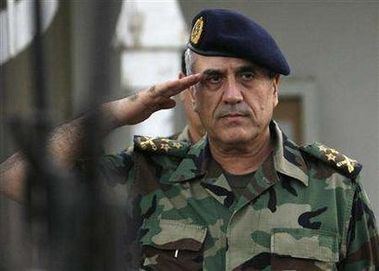 New york times, The political logjam over Lebanon
New york times, The political logjam over Lebanon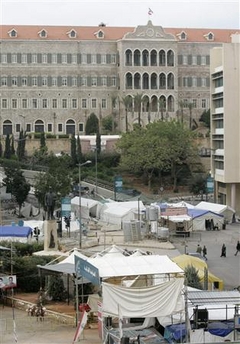 BEIRUT Lebanon’s opposition on Saturday marks the one-year anniversary of its sit-in in central Beirut, vowing to stay on for years if need be to force the resignation of the government. "The sit-in began because there is a government that we consider illegitimate, and as long as our goal has not been achieved we will stay there indefinitely," Hezbollah spokesman Hussein Rahal told AFP. The continued protest comes as the country grapples with a dangerous political vacuum that has left the presidency vacant because of a standoff between pro and anti government forces.
BEIRUT Lebanon’s opposition on Saturday marks the one-year anniversary of its sit-in in central Beirut, vowing to stay on for years if need be to force the resignation of the government. "The sit-in began because there is a government that we consider illegitimate, and as long as our goal has not been achieved we will stay there indefinitely," Hezbollah spokesman Hussein Rahal told AFP. The continued protest comes as the country grapples with a dangerous political vacuum that has left the presidency vacant because of a standoff between pro and anti government forces. 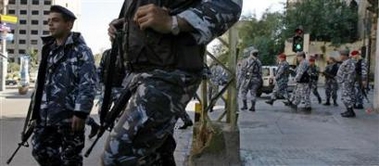 BEIRUT (AFP)–Lebanon entered a decisive week Monday during which parliament is due to elect a new president, with many warning that the country risks sliding into chaos if the political vacuum persists."We are now in an interim period which may lead us to stability, or to chaos and confrontation," Cardinal Nasrallah Sfeir, from whose Maronite community Lebanese presidents are drawn, said during his Sunday sermon.
BEIRUT (AFP)–Lebanon entered a decisive week Monday during which parliament is due to elect a new president, with many warning that the country risks sliding into chaos if the political vacuum persists."We are now in an interim period which may lead us to stability, or to chaos and confrontation," Cardinal Nasrallah Sfeir, from whose Maronite community Lebanese presidents are drawn, said during his Sunday sermon.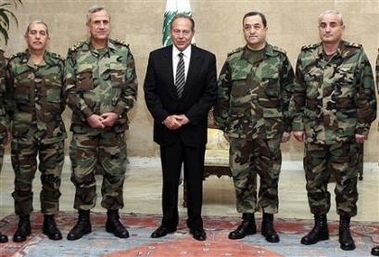
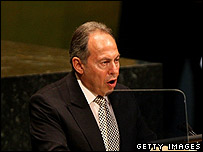 Lebanese MPs are facing a deadline of midnight to appoint a new president. However, mediators fear rival camps will fail to reach a deal, plunging the country into a deeper political crisis. Attempts to elect a new president over the past two months have been hampered by rivalry between pro and anti-government supporters.
Lebanese MPs are facing a deadline of midnight to appoint a new president. However, mediators fear rival camps will fail to reach a deal, plunging the country into a deeper political crisis. Attempts to elect a new president over the past two months have been hampered by rivalry between pro and anti-government supporters.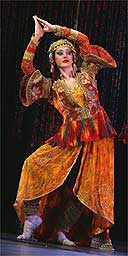 By Tom Perry, BEIRUT (Reuters Life!) – Lebanon’s Caracalla Dance Theatre defied the odds to bring its fusion of modern and oriental dance to stages at home and abroad, building one of the Arab world’s great artistic success stories. But having survived Lebanon’s 1975-1990 civil war, Caracalla has been suffering its toughest spell in nearly four decades of dance, says company founder Abdel-Halim Caracalla.
By Tom Perry, BEIRUT (Reuters Life!) – Lebanon’s Caracalla Dance Theatre defied the odds to bring its fusion of modern and oriental dance to stages at home and abroad, building one of the Arab world’s great artistic success stories. But having survived Lebanon’s 1975-1990 civil war, Caracalla has been suffering its toughest spell in nearly four decades of dance, says company founder Abdel-Halim Caracalla.


